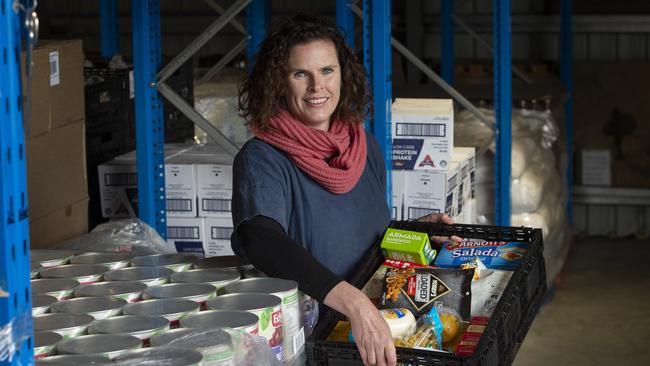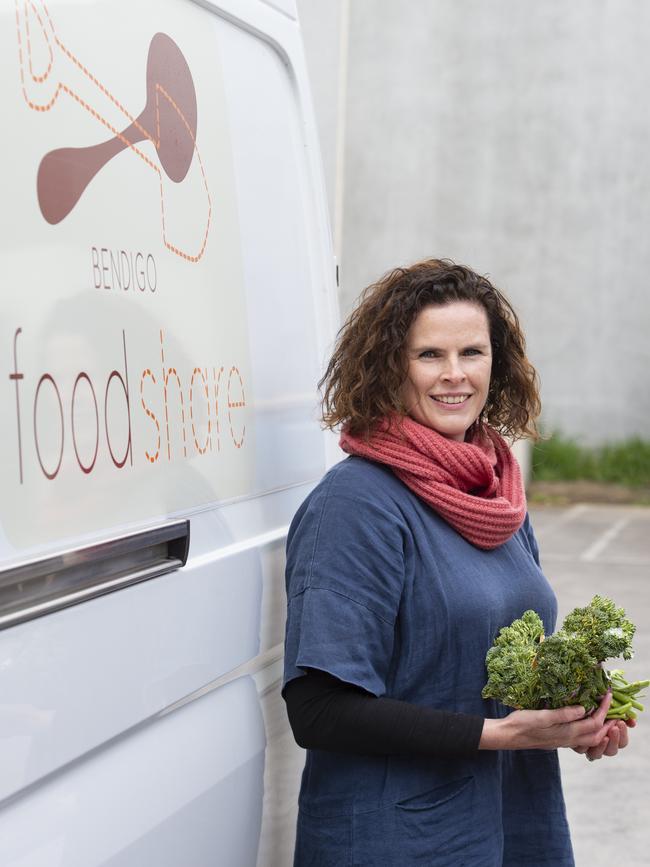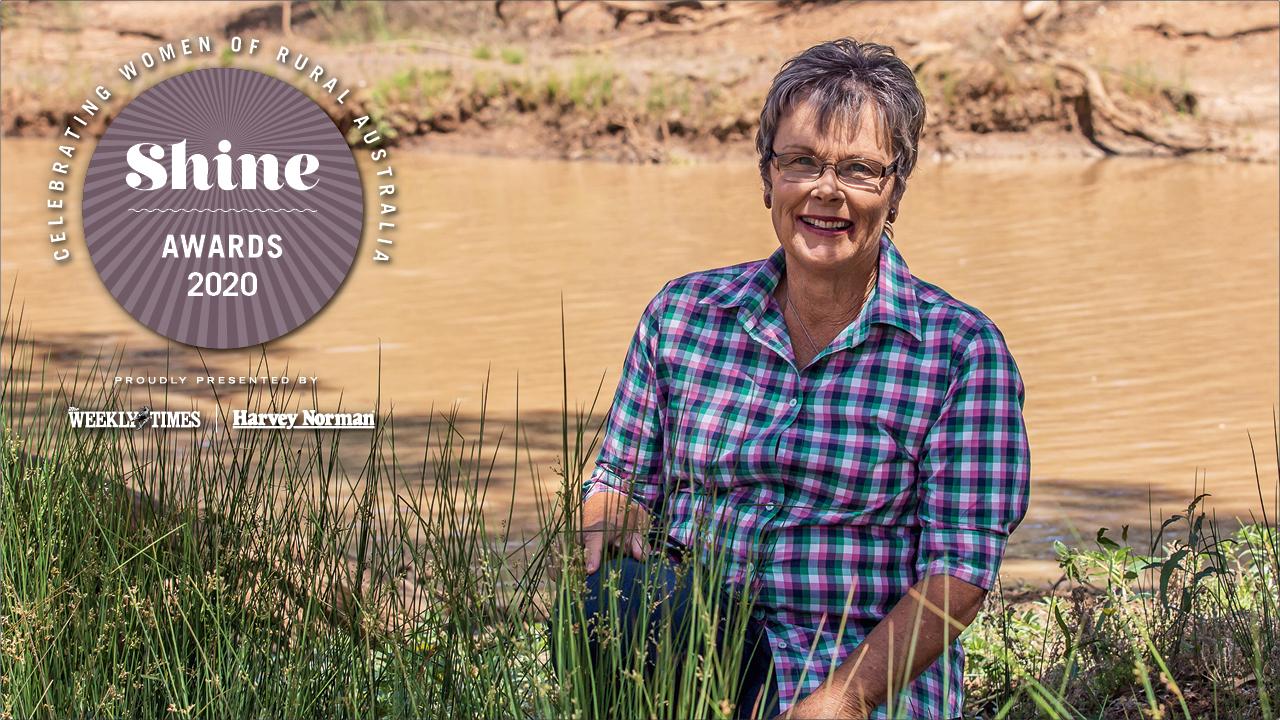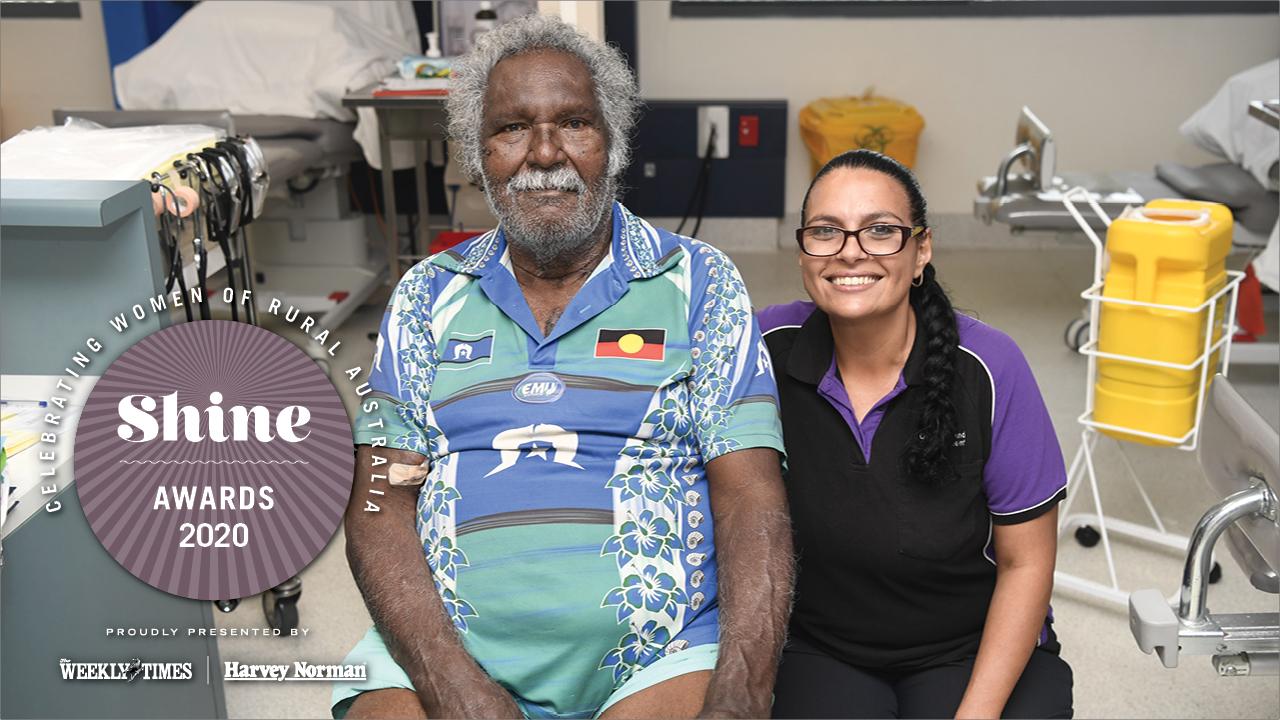Bridget Bentley of Bendigo Foodshare helping to manage crisis response
Bridget Bentley became manager of Bendigo Foodshare just as coronavirus started sweeping the world. This is how the charity rallied the community in response to the crisis.

AS SUPERMARKET shelves were being stripped in the initial waves of panic buying, it was not only shoppers desperate for toilet paper and pasta leaving empty-handed.
Behind the scenes, the crisis was hitting those groups that rely on supermarket leftovers to feed those in need, a number climbing sharply in the midst of the pandemic.
Bendigo Foodshare manager Bridget Bentley says this was the first major impact of the virus for her organisation, a charity that redistributes food to other groups and charities.
“We collect food from supermarkets and we were getting nothing,” she says. “You know things are dire when you don’t get bread, because supermarkets are notorious for over-producing bread and we were getting nothing.”
Bridget became manager of Bendigo Foodshare in January, overseeing the charity’s response to the crisis.
She says some agencies Bendigo Foodshare works with reported a 40 per cent increase in food relief need since March.
Its initiatives have also focused on finding ways the community can contribute in a time of hardship — a recruitment drive this year attracted 230 new volunteers — and developing new campaigns they can support.

“One of the important things through all of this, and also looking forward … is always be true to our core objectives and core values and if we do that I don’t think we can go wrong,” Bridget says.
“That is about sourcing food and getting it out to people who need it and to do that with the community’s support — that we are part of the community and need the community to operate and survive.”
Bridget grew up in Wattle Glen, and studied agricultural science at university, where she met her husband. They live on a hobby farm in North Harcourt with their three children.
Last year, Bridget faced the challenge of getting back into the workforce after family leave, in her case, of eight years. She took a chance on a one-day-a-week role with Grow, Cook, Share, a multi-agency project that included Bendigo Foodshare.
It aimed to tackle dual issues of food insecurity and poor diet among Bendigo’s vulnerable by increasing access to healthy produce and education about how to prepare it.
“It was a great opportunity because it was connecting people to fresh produce,” she says, adding that she was able to quickly increase the role to four days a week.
“It was one of those occasions where if you’re passionate and interested and engaged — and I was lucky I was given support from the people who were running the project — and so it grew,” she says.
The next opportunity turned out to be the manager role with Bendigo Foodshare, which in the 2019-20 financial year collected and distributed 893,000kg of food. As well as 96 local supermarket collections a week, they also receive food from Melbourne charities such as food banks and Second Bite.
That food is then distributed to about 90 registered organisations across central Victoria, from groups such as the Salvation Army and Anglicare to schools and childcare groups and community houses.
Before COVID-19 struck, those agencies were supporting 12,875 people every week with food relief, Bridget says. But this year the ones that have been able to continue working through the pandemic report the surge in demand.
“And we expect that as government support reduces at the end of September that those numbers will just keep increasing,” Bridget says.
Meanwhile, although farmers and other local businesses have also donated produce to show their support, Bridget says supply levels still have not returned to normal.
In response to the panic buying, Foodshare Bendigo worked with council and other groups to establish a program called Help Your Neighbour.
“I was reading what was happening, this effect of panic buying, that some people’s theory was it was linked to people trying to claw back some sense of control in an out of control situation,” Bridget says.
“So Help Your Neighbour was about trying to share ideas and ways of people having control through positive action and by caring and looking out for each other.”
Another new Bendigo Foodshare initiative was Cafes for COVID. Bendigo Foodshare raised an initial $12,000 through GoFundMe, which paid for hospitality businesses to make meals to be distributed through the food relief agencies. The program has since raised more than $37,000 and 15 businesses have been involved.
With many of their usual fundraising activities disrupted, they held Bendigo’s Biggest Takeaway over the weekend, which was targeted at both supporting local hospitality businesses and attracting donations for the charity.
And Bendigo Foodshare has been involved in developing an online platform where people who need food support can turn and not have to worry about the stigma or the normal barriers, she says.
All the people in the chain Bridget works with — from the people who donate food or money, the volunteers, to the people who receive the food — keep her going.
“All of the community connections are what keeps Bendigo Foodshare going and has kept myself and my colleagues going. It is inspiring,” Bridget says.
Bridget Bentley is a nominee in The Weekly Times Shine Awards, supported by Harvey Norman.
MORE
COURTNEY BAKER BREAKS DOWN HEARING LOSS STIGMA
FIONA AVEYARD’S OUTBACK LAMB BRAND WEATHERS THE STORM
‘AIM HIGH’: BALLARAT’S SUSAN PATTERSON INSPIRES A GENERATION


